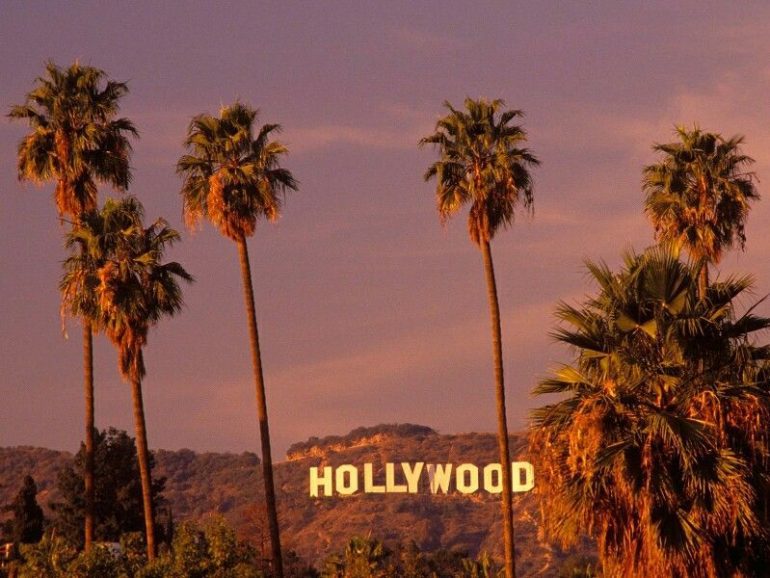- In discussions with Hollywood for content licensing for AI video generation software.
- Capable of translating text prompts into lifelike video scenes.
- Tech giants offering multimillion-dollar deals to studios.
- Backed by Microsoft, also in similar negotiations.
- Interested in AI for cost reduction but concerned about intellectual property control.
- Highlighted industry concerns over control and usage of likeness.
- News Corp. made a $250 million deal with OpenAI for content access over five years.
- Warner Bros. Discovery open to selective licensing; Disney and Netflix remain cautious.
- OpenAI’s Sora and Alphabet’s Veo promise advanced video creation capabilities from text inputs.
- Tyler Perry paused a studio expansion to focus on AI’s impact, calls for regulation.
- No legal actions by Hollywood against AI firms yet, preferring collaboration over litigation.
- Issues include actor rights and creative approvals.
- Studios seek to integrate AI while maintaining artistic integrity and protecting creative interests.
Main AI News:
In a bid to revolutionize content creation, Alphabet Inc. and Meta Platforms Inc. are in deep talks with Hollywood’s major players regarding content licensing for their cutting-edge artificial intelligence video generation software, sources close to the negotiations reveal.
Both tech giants are pioneering technologies capable of translating text prompts into lifelike scenes, enticing studios with multimillion-dollar offers for potential partnerships. Similarly, OpenAI, bolstered by the backing of Microsoft Corp., is engaged in similar dialogues. Although Alphabet, Meta, and OpenAI have chosen to remain tight-lipped about the ongoing discussions, industry insiders hint at a seismic shift on the horizon.
Hollywood moguls are eager to explore AI’s potential in cost reduction while safeguarding their intellectual property. Concerns loom large over relinquishing control of their prized creations to tech behemoths. Just recently, renowned actress Scarlett Johansson demanded OpenAI cease using her likeness in their chatbot, underscoring the industry’s apprehensions.
The stakes are undeniably high. News Corp., the parent company of Wall Street Journal and other media outlets, struck a deal with OpenAI worth over $250 million, spanning five years, granting access to its vast content repository. Meanwhile, Warner Bros. Discovery Inc. is open to selective licensing arrangements, prioritizing certain divisions over a blanket agreement. Conversely, Walt Disney Co. and Netflix Inc. remain cautious, exploring alternative avenues for collaboration.
While AI integration in filmmaking is not entirely new, emerging tools like OpenAI’s Sora and Alphabet’s Veo promise unprecedented capabilities. These technologies enable rapid creation of immersive, lifelike clips based on minimal textual input, sparking a mix of anticipation and concern within Tinseltown.
Tyler Perry, an industry heavyweight, was so impressed by Sora’s demonstration that he halted an $800 million studio expansion project earlier this year. While acknowledging AI’s potential, Perry advocates for proactive regulation to mitigate its impact on labor, stressing the need for industry-wide solidarity.
Despite the music industry’s hardline stance against AI, Hollywood studios have yet to initiate legal action against tech firms. Instead, they seek collaborative solutions to harness AI’s potential without jeopardizing creative integrity. However, navigating licensing agreements poses challenges, particularly concerning actor rights and creative approvals.
As Hollywood grapples with the impending AI revolution, tensions simmer between studios and creative stakeholders. Balancing innovation with artistic integrity remains a pressing concern, underscoring the need for collaborative frameworks to navigate the evolving landscape of content creation.
Conclusion:
The intersection of technology and entertainment heralds a new era of content creation, with tech giants vying for collaboration with Hollywood studios. While AI offers unprecedented possibilities, industry stakeholders must navigate regulatory and creative challenges to harness its potential effectively. Collaborative frameworks and proactive regulation will be crucial in shaping the future landscape of content creation and safeguarding the interests of all stakeholders.

